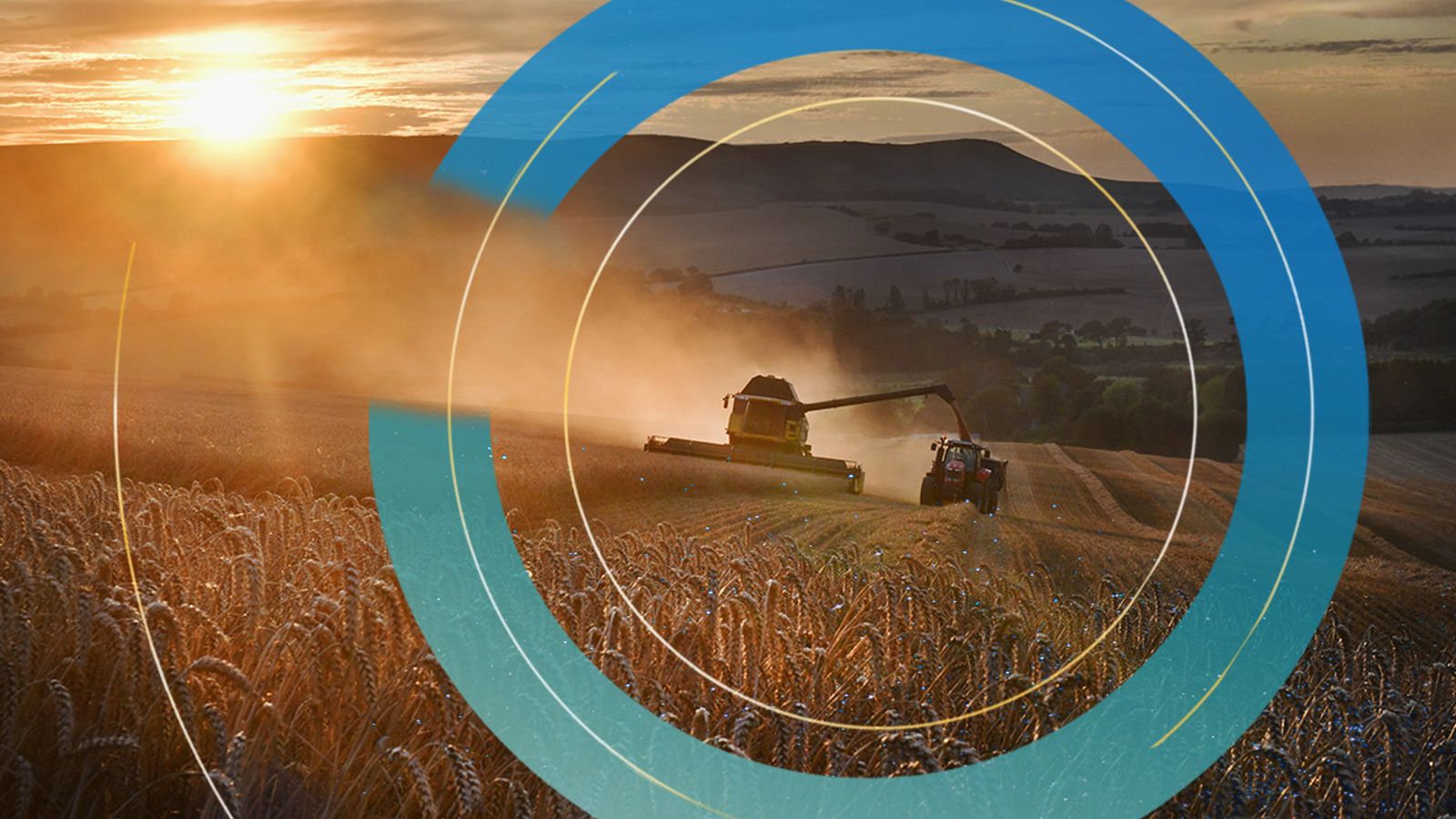The UK’s five biggest supermarkets will try to halve the environmental impact of a weekly food shop by the end of the decade.
It is the latest climate promise made during the COP26 summit in Glasgow, and it comes as the UK announces it will lead 45 governments in moving towards more sustainable ways of farming.
Tesco, Sainsbury’s, Waitrose, Co-op and M&S will work with the World Wide Fund for Nature to halve:
• The amount of global warming that shopping baskets cause
• The forests that are cut down to fill the baskets
• The impact of the agriculture and seafood in baskets
• The food waste and packaging they produce
COP26: Tens of thousands expected to march in Glasgow alongside millions more around the world in Global Day of Action for the climate
COP26: Thousands of activists march on the streets of Glasgow
‘We are angry’: On the ground with young climate protesters joining Greta in blasting COP26
They also promised targets to help keep global warming below 1.5C above pre-industrial temperatures.
In a joint statement, the supermarket bosses said: “As CEOs of leading UK food retailers, we recognise that a future without nature is a future without food. By 2030 we need to halt the loss of nature.”
WWF chief executive Tanya Steele said: “Food production is one of the biggest threats to our planet and we will only tackle the climate and nature emergency if food retailers play their part.”
It comes as 45 governments set out their plans to transform agriculture and food systems while reducing emissions, protecting nature, securing food, and safeguarding jobs.
Their commitment will include:
• Leveraging more than $4bn (£3bn) of new public sector investment into agricultural innovation such as climate-resilient crops and ways to improve soil health, making these available to farmers around the world
• Supporting “action agendas” which set out how governments, farmers and others can make food systems sustainable
• The UK will launch a £500m package to protect five million hectares of rainforest from deforestation
• The UK’s funding will create thousands of “green jobs” in rainforest regions and generate £1bn of private sector investment to tackle climate change around the world
Environment Secretary George Eustice said: “There needs to be a fair and just transition that protects the livelihoods and food security of millions of people worldwide – with farmers, indigenous people and local communities playing a central role in these plans.”
Anna Jones, head of forests and food at Greenpeace UK, said the plans did not go far enough, adding: “Efforts to address supply chains are limited to little more than a talking shop around terms of trade for agricultural commodities.
“And there’s nothing on the need to reduce demand for products like meat and dairy that are driving deforestation – a real red flag for cash going straight into the pockets of the big ag companies that caused the nature crisis in the first place.”
Matt Williams, climate and land programme lead at the Energy and Climate Intelligence Unit, said: “Many farmers have come to Glasgow to talk about what they’re already doing to cut their climate impact, and to ask for a seat at the table.
“Consumers are increasingly vocal about imported food that’s connected to deforestation overseas, and governments and companies are hearing this message.
“These government pledges to change how they incentivise farmers, and supermarket promises to cut their impact, can serve up a result that’s good for people, nature, and the climate.”
The UK will also announce new spending from the £3bn fund for nature, including:
• Nearly £25m out of the £150m from the Department for Business, Energy and Industrial Strategy’s Mobilising Finance for Forests programme to develop sustainable supply chains in tropical countries
• Over £38m for a new research to address the climate crisis and protect nature while advancing gender equality, poverty reduction, and food and nutrition security
• Up to £40m to establish the Global Centre on Biodiversity for Climate. This will address critical research gaps in how the conservation and sustainable use of biodiversity can deliver climate solutions and improve livelihoods in developing countries
Subscribe to ClimateCast on Spotify, Apple Podcasts, or Spreaker
For full coverage of COP26, watch Climate Live on Sky channel 525.
Follow live coverage on web and app with our dedicated live blog.
Get all the latest stories, special reports and in-depth analysis at skynews.com/cop26






















